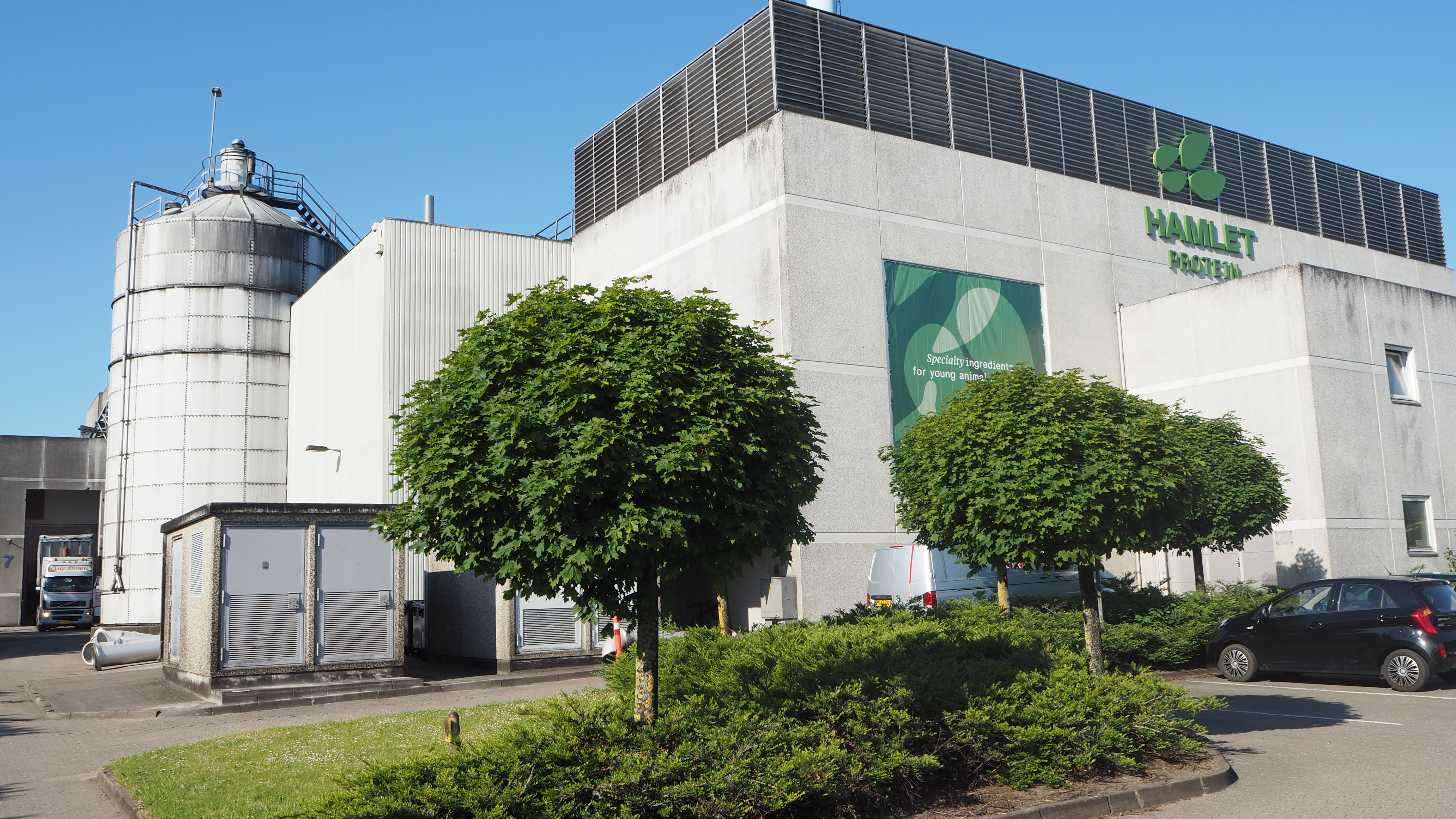Market outlook 2023: Hamlet Protein CEO discusses main trends
At the beginning of the new year Hamlet Protein CEO Erik Visser discusses the 2023 market outlook for the animal nutrition industry in general and for Hamlet Protein in particular. The global leader in specialty ingredients for young animal nutrition expects volatility and high feed costs to continue yet sees opportunities for growth in swine and poultry markets.
FEED COSTS
“As part of an inflationary environment, we expect that increased cost levels of utilities, fertilizers, transport and labor will contribute to continuous high feeding costs. ”With relatively low agri-commodity stocks, the risk of volatility will remain high in 2023. As the cost of nutrition makes up the bulk of production costs, producers will favor solutions that will help drive efficiencies at their farms.
SBM
Price levels of Soybean Meal will primarily be driven by weather, demand for renewable energy and consumption levels in China. “Considering current stock levels and weather forecasts, we expect to see a 5 to 10% cost reduction in 2023 versus the 2022 average,” according to Visser.
UTILITIES
European producers and households were severely affected by high utilities costs in 2022. As geo-political tensions continue, no significant drop in price levels is expected any time soon and markets will see continued volatility. “Where we expect some price relief in Q2 and Q3, Q4 will be the big question mark as governments will need to rebuild gas stocks without Russian supply.”
SUPPLY CHAIN
With global demand falling, increased capacity and reduced port congestion, spot rates for ocean freight will continue to decline.
“Even though we may see some relief on container freight costs, logistics in the global supply chain in general will continue to suffer disruptions in 2023 impacting reliability and cost levels,” indicated Visser.
These disruptions will be driven by the energy crisis, labor shortages and demand imbalance.
ANIMAL DISEASES
Avian Influenza and African Swine Fever will continue to impact animal numbers across geographies. The occurrence of these disease patters, and the absence of break through treatments like vaccinations, will bring with it a further focus on farm management and bio-security measurements.
“As a consequence we expect that animal protein as a diet source, like blood plasma and fish meal, will come under pressure.”
SUSTAINABILITY
Sustainability and animal well fare will be on the agenda of consumers as well as governments. Several countries are considering further taxation on CO2 emissions or actively try to reduce animal population through buy outs of farmers.
Even though this will not slow down the global demand for animal protein, it will have an impact on where production will take place.
REGULATION
The trend to reduce medication in feed, and in particular anti-biotics will continue. Europe banned the pharmacological use of Zinc Oxide mid-2022 and we will see farmers finetuning their diet composition in 2023.
“These regulatory trends create opportunities for suppliers of natural solutions like Hamlet Protein,” indicated Visser.
CONSUMER BEHAVIOR
Cost of living pressure will have consumers rethink their diets and may impact the type and amount of animal protein they consume. Typically, that will favor poultry and pork consumption over beef.
As inflation has accelerated the cost of alternative protein sources and plant-based meat substitutes, we expect the demand for these products to be down in 2023.
GEOGRAPHIES & SPECIES OUTLOOK
“Animal protein production trends vary across geographies. In general terms we expect a downward trend in Europe and improved market conditions in South East Asia. On a species level we expect growth in poultry and aquaculture, a slight decline in beef and a somewhat stronger decline in pork.”
“The reduction in pork will be mainly driven by Europe where the decline in pig numbers will continue. On the other hand we expect China pork demand to increase as Covid restrictions will further ease, generating opportunities for exporting countries,’ said Erik Visser.
HAMLET PROTEIN
“When looking back at 2022, we can say it was a challenging year for our industry in general and for Hamlet Protein in particular. We are proud to have been able to supply our customers continuously amidst challenging market conditions and to have honored our contract positions even in times of rapidly increasing cost levels.”
“Hamlet Protein operates across the world, and conditions and challenges vary across markets. So even if we try to catch the main developments when speaking about the 2023 market outlook, it is in the interaction with our local and technical teams that our customers can and should focus on what these trends mean for their business.”
“In general terms we expect production efficiency, bio-security, farm management and cost control to be more important than ever. Our products and knowledge can support producers in driving health through nutrition. Hamlet Protein’s vegetable protein products are considered to be the benchmark in solutions for young animal nutrition and our fiber range a new addition that can count on increasing interest not only in Europe where ZnO was banned, but also in other markets.”
“Even though pig numbers are showing a downward trend in some geographies, we feel that we still have a lot of room for growth through an increased market penetration of global markets. Our investments in poultry knowledge and product development will see us taking a higher share of market. The market for calf milk replacers, where Hamlet Protein is traditionally well positioned, will remain strong in 2023. Finally, we will selectively participate in aquaculture and pets markets.”
“We look to the future with confidence. Efficient and effective animal nutrition can support the health status of animals, lower the carbon footprint through improved feed conversion ratios and support growth. Increasingly producers realize that investing in early life nutrition will help drive the performance of their animals and that is exactly where Hamlet Protein has proven to be a reliable partner ever since the founding of our company 30 years ago,” concluded Erik Visser.
Hamlet Protein produces soy-based protein ingredients for young piglet, poultry, and cattle feed at two production plants in Denmark and the US. Hamlet Protein services customers around the world through a network of own sales offices and distributors. Find out more www.hamletprotein.com


